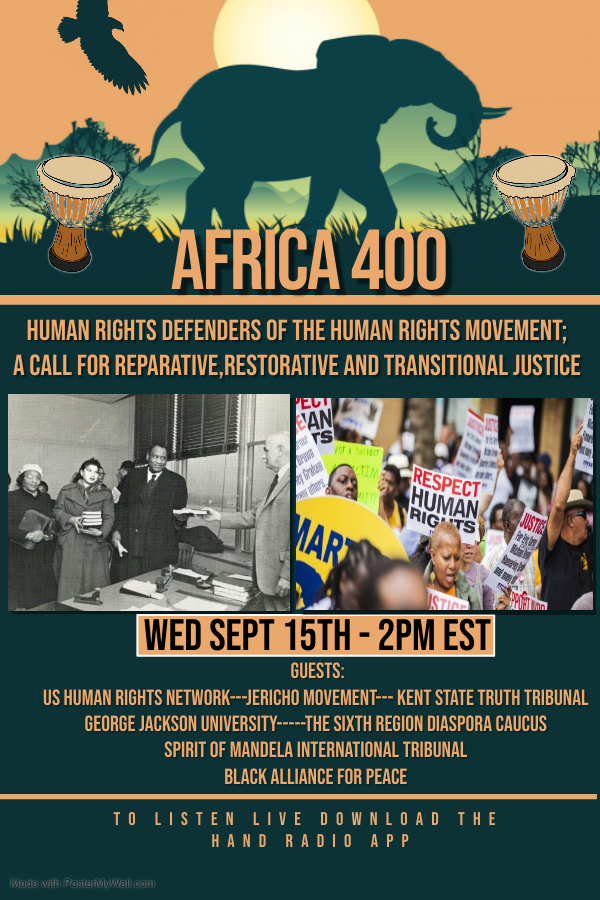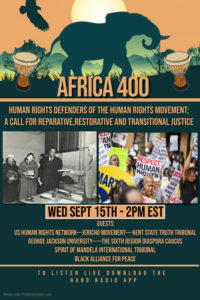 The Wednesday, September 15 edition of Africa400 features a panel of guests representing several organizations working in defense of human rights and the empowerment of People of African Descent. Show hosts Mama Tomiko and Baba Ty welcome members of several organizations to discuss their roles in the pursuit of human rights, restorative justice and raising the voice of the grassroots Pan-Afrikan Diaspora and marginalized communities.
The Wednesday, September 15 edition of Africa400 features a panel of guests representing several organizations working in defense of human rights and the empowerment of People of African Descent. Show hosts Mama Tomiko and Baba Ty welcome members of several organizations to discuss their roles in the pursuit of human rights, restorative justice and raising the voice of the grassroots Pan-Afrikan Diaspora and marginalized communities.
To listen to the September 15 show, click below:
Below are descriptions of each of the organizations that appeared on the show:
US Human Rights Network (USHRN)
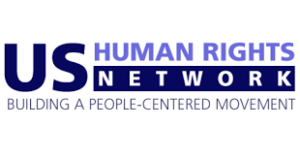 The US Human Rights Network (US Human Rights Network (ushrnetwork.org)) is a national
The US Human Rights Network (US Human Rights Network (ushrnetwork.org)) is a national 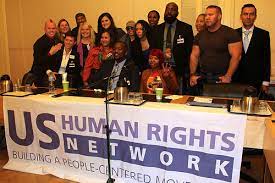 network of organizations and individuals working to strengthen a human rights movement and culture within the United States led by the people most directly impacted by human rights violations. We work to secure dignity and justice for all.
network of organizations and individuals working to strengthen a human rights movement and culture within the United States led by the people most directly impacted by human rights violations. We work to secure dignity and justice for all.
We work to realize human rights by:
- Engaging, connecting and mobilizing communities, Peoples, workers, and diverse sectors
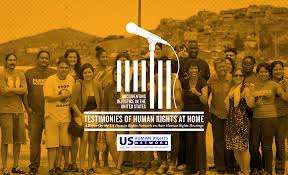 across issue areas, constituencies, and regions to uphold and defend human rights and hold government accountable;
across issue areas, constituencies, and regions to uphold and defend human rights and hold government accountable; - Building the capacity and leadership of grassroots groups and individuals to effectively apply the human rights framework in developing strategy and making long-term structural shifts to achieve justice;
- Raising the visibility of local human rights concerns and activism to shape the public discourse locally, nationally, and internationally; and
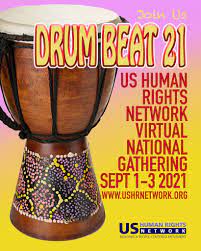 Facilitating effective collective action to secure the structural change needed to fully realize human rights.
Facilitating effective collective action to secure the structural change needed to fully realize human rights.
The US Human Rights Network is guided by these core principles:
- Human rights are universal, interdependent, indivisible, and inalienable.
- Human rights movements must be led by those most directly affected by human rights violations.
- Human rights advocacy and organizing should prioritize the struggles of the poor and most marginalized groups in society.
- Human rights movements must be inclusive and respect and reflect the diversity within communities.
- Human rights encompass civil, political, economic, social, cultural, environmental, sexual, and development rights for individuals, Peoples, and groups.
Jericho Movement
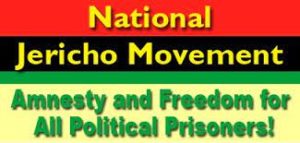 Jericho is a movement with the defined goal of gaining recognition of the fact that political prisoners and prisoners of war exist inside of the United States, despite the United States’ government’s continued denial … and winning amnesty and freedom for these political prisoners.
Jericho is a movement with the defined goal of gaining recognition of the fact that political prisoners and prisoners of war exist inside of the United States, despite the United States’ government’s continued denial … and winning amnesty and freedom for these political prisoners.
The Jericho Movement (https://thejerichomovement.com/) addresses four principal issues:
- Building the Amnesty Campaign
A big part of this work is locating political prisoners, compiling dossiers on them, and building the case for amnesty.
- Continuing the Educational Campaign
About the Existence of Political Prisoners inside the U.S.
- The Jericho Legal Defense Fund
Providing supportive expenses for lawyers and law students etc. to provide legal defense for political prisoners.
- The Jericho Medical Project
Fighting for adequate and quality medical care for political prisoners.
George Jackson University (GJU)
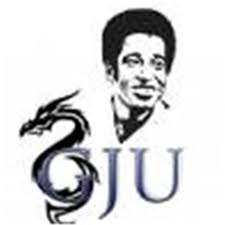 AN OVERVIEW
AN OVERVIEW
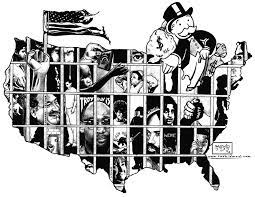 In 2003, Abdul Olugbala Shakur, Sitawa Nantambu Jamaa, Hodari Kambon, Abasi Ganda, Yafeu I-yapo, Dr. Donald R. Evans, and Dr. Rashad Ali developed the concept of transforming the entire U.S. Prison Industrial Slave-Complex (P.I.S.C.) into the largest university in the country. The initial name for the project was University of the Mind, but under this title we received very minimum feedback, so by Summer of 2003 we decided to name our university The George Jackson University (GJU), https://www.georgejacksonuniversity.com/, within six (6) months we received over 20,000
In 2003, Abdul Olugbala Shakur, Sitawa Nantambu Jamaa, Hodari Kambon, Abasi Ganda, Yafeu I-yapo, Dr. Donald R. Evans, and Dr. Rashad Ali developed the concept of transforming the entire U.S. Prison Industrial Slave-Complex (P.I.S.C.) into the largest university in the country. The initial name for the project was University of the Mind, but under this title we received very minimum feedback, so by Summer of 2003 we decided to name our university The George Jackson University (GJU), https://www.georgejacksonuniversity.com/, within six (6) months we received over 20,000 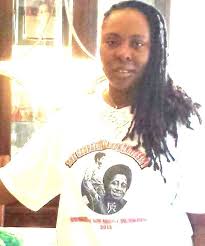 applications for enrollment into our GJU from New Afrikan (Afrikan Amerikan) prisoners across the country, we even received applications from as far as Brazil, London, and Canada, brothas and sistas trying to connect.
applications for enrollment into our GJU from New Afrikan (Afrikan Amerikan) prisoners across the country, we even received applications from as far as Brazil, London, and Canada, brothas and sistas trying to connect.
HISTORY OF GJU
In the past five (5) years a growing number of people have inquired about the GJU, make no mistake about it, we were not discouraged from pursuing our objective, many of us have been extremely busy working on a number of other issues, and not to mention all documents related to the GJU were fraudulently confiscated, therefore we have to start all over again. Our first step 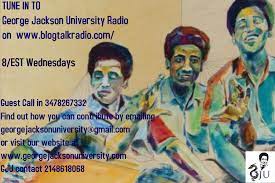 towards revising the GJU is developing a strong and dedicated outside support network and faculty . We are re-instituting the concept of transforming the entire U.S. prison industrial slave complex into the largest progressive educational institution in the country with emphasis on Afro-centric and Pan-Afrikan studies and New Afrikan political education.
towards revising the GJU is developing a strong and dedicated outside support network and faculty . We are re-instituting the concept of transforming the entire U.S. prison industrial slave complex into the largest progressive educational institution in the country with emphasis on Afro-centric and Pan-Afrikan studies and New Afrikan political education.
The Kent State Truth Tribunal
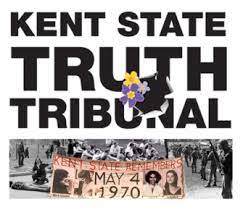 On May 4, 1970 a troop of Ohio National Guardsmen opened fire on unarmed Kent State
On May 4, 1970 a troop of Ohio National Guardsmen opened fire on unarmed Kent State 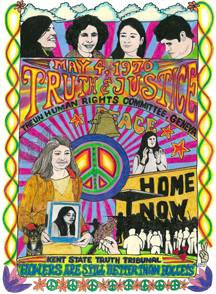 students protesting America’s invasion of Cambodia. Four students were shot dead and nine others wounded. Ten days later, also in a student protest against the Vietnam War, two Jackson State College students were killed and more than 11 wounded by the Mississippi police.
students protesting America’s invasion of Cambodia. Four students were shot dead and nine others wounded. Ten days later, also in a student protest against the Vietnam War, two Jackson State College students were killed and more than 11 wounded by the Mississippi police.
The Kent State and Jackson State student killings seized headlines at a watershed moment in American history, bringing the war home and distressing a country already divided over the Vietnam War. In the days that followed the campus massacres, more than four million students rose up in dissent across 900 university campuses, generating the largest nationwide student protest in U.S. history.
The Kent State massacre has never been thoroughly, impartially investigated and no person or group has been held accountable for wrongdoing. Through the courts, families of those who were killed or injured received paltry sums of compensation and a statement of regret.
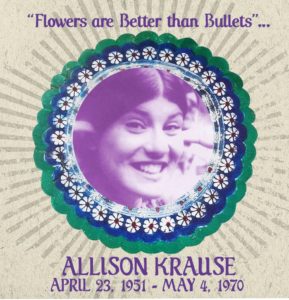 Forty years after Kent State in 2010, new digital forensic evidence emerged in a tape recording of the Kent State commands-to-fire and gunfire. Still, the U.S. Dept. of Justice refused a credible inquiry into the new audio that contained the sounds of shooting and killing of students exercising their fundamental right to political expression. There has been no admission of responsibility on the part of the state.
Forty years after Kent State in 2010, new digital forensic evidence emerged in a tape recording of the Kent State commands-to-fire and gunfire. Still, the U.S. Dept. of Justice refused a credible inquiry into the new audio that contained the sounds of shooting and killing of students exercising their fundamental right to political expression. There has been no admission of responsibility on the part of the state.
The Truth Tribunal (https://www.truthtribunal.org/) is a direct response to this history of impunity for Kent State. On the 40th anniversary of the Kent State massacre, Allison’s sister Laurel decided to learn and record the truth at Kent State from the people who were there. For decades she had watched Kent State University and the U.S. government act with institutional power and unlimited funds as they repressed the truth at Kent State and buried all evidence of government complicity in committing the Kent State massacre. The Truth Tribunal archive will stand as an enduring record of the truth, as told by those who witnessed and survived that day.
Just before his death, Boston University history professor and renowned advocate Dr. Howard Zinn sent Laurel this note:
Laurie,
You are right that trying to get “redress” via the judicial system is a dead end, or a maze, and that learning and spreading the truth is the most important thing you can do. That was the idea of the Truth and Reconciliation Commission in South Africa.
Sixth Region Diaspora Caucus (SRDC)
 The Sixth Region Diaspora Caucus (https://srdcinternational.org) was founded in 2006 in response to the African Union’s (AU) decision in 2003 to invite the African Diaspora “to participate fully as an important component in the building of the African Union.” The AU initially coined the term “Sixth Region” to describe the Diaspora, which consisted of “people of African descent and heritage, living outside the Continent, irrespective of their country of citizenship, who are willing to contribute to the development of the African Continent and the building of the African Union.” While the AU established the Economic, Social and Cultural Council (ECOSOCC), an AU organ that was established to allow for the participation of Africa’s “non-state actors” or grassroots civil society in advising the General Assembly, as the means by which the Diaspora would begin our journey to full AU membership, as well as a set of criteria and procedures to establish that representation, the actual organization of the people of the Diaspora to accept this invitation was left up to us in the Diaspora ourselves. Toward that end, SRDC has developed a plan to empower the people to choose our Diaspora representatives in ECOSOCC through a series of local, national and international elections (one cannot appoint themselves or others to be a representative), and to bring our many Pan-African organizations together in a cooperative effort to accomplish this task, so we can truthfully say that the result of our efforts is a delegation that truly speaks for the people of the Pan-African Diaspora. Our work will not stop there, however; our hope is to help establish representation for the Diaspora in the AU’s Pan African Parliament (which can actually create legislation), as well as fight for the recognition of the Diaspora by the United Nations and its numerous international human rights and geopolitical bodies.
The Sixth Region Diaspora Caucus (https://srdcinternational.org) was founded in 2006 in response to the African Union’s (AU) decision in 2003 to invite the African Diaspora “to participate fully as an important component in the building of the African Union.” The AU initially coined the term “Sixth Region” to describe the Diaspora, which consisted of “people of African descent and heritage, living outside the Continent, irrespective of their country of citizenship, who are willing to contribute to the development of the African Continent and the building of the African Union.” While the AU established the Economic, Social and Cultural Council (ECOSOCC), an AU organ that was established to allow for the participation of Africa’s “non-state actors” or grassroots civil society in advising the General Assembly, as the means by which the Diaspora would begin our journey to full AU membership, as well as a set of criteria and procedures to establish that representation, the actual organization of the people of the Diaspora to accept this invitation was left up to us in the Diaspora ourselves. Toward that end, SRDC has developed a plan to empower the people to choose our Diaspora representatives in ECOSOCC through a series of local, national and international elections (one cannot appoint themselves or others to be a representative), and to bring our many Pan-African organizations together in a cooperative effort to accomplish this task, so we can truthfully say that the result of our efforts is a delegation that truly speaks for the people of the Pan-African Diaspora. Our work will not stop there, however; our hope is to help establish representation for the Diaspora in the AU’s Pan African Parliament (which can actually create legislation), as well as fight for the recognition of the Diaspora by the United Nations and its numerous international human rights and geopolitical bodies.
This, of course, has turned out to be no easy task. To maintain the trust of our grassroots communities, we need to consistently demonstrate that we are indeed dedicated to addressing the issues that afflict us as a people, which we continue to do by holding Community Town Hall Meetings where information and ideas are shared with and by the community, by planning or assisting with on-the-ground projects such as cultural events, educational events and capital projects, by inviting different organizations to participate with us, and by forming coalitions to help bring those organizations, as well as our communities, together on a more regular basis. Still, rivalry and distrust continue to threaten the unity we are working toward, disinformation is spread by those who wish to prevent us from coming together in the first place, and even the African Union itself often allows its own bureaucracy to complicate our work and make our job that much harder. These obstacles cause some activists to lose hope and abandon the struggle, but SRDC has continued to push forward despite all this. Thus, while we continue to work to establish our voice in the African Union, we also participate in discussions and forums of the United Nations, coalitions of grassroots civil-society groups and of other international Pan-African organizations in hopes of building a standing global coalition that can more effectively pursue truth, justice, self-determination and prosperity for African people and the world as a whole.
SRDC is organizing in several areas of the US and Canada, and our organizational allies in Central America (Central American Black Organization, or CABO), Europe (African Union African Diaspora Sixth Region, AUADS), the Caribbean (Mouvement International pour Reparation in Guadeloupe), the Middle East (Middle East African Diaspora Unity Council in Dimona, Israel) and recently, the African Continent (Sehwah-Liberia and organizations in Tanzania) are doing similar work where they are. Our plan for organizing the Diaspora includes sponsoring regular local community Town Hall Meetings, establishing Councils of Elders, holding an annual International Summit (This year’s Summit will be in Monrovia, Liberia) and building alliances and coalitions with other organizations.
To find our more, visit https://srdcinternational.org, or email info@srdcinternational.org or cliff@kuumbareport.com.
Spirit of Mandela Coalition
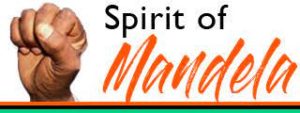 Created in 2018, In the Spirit of Mandela Coalition (https://spiritofmandela.org/) is a growing grouping of organizers, academics, clergy, attorneys, and organizations committed to working
Created in 2018, In the Spirit of Mandela Coalition (https://spiritofmandela.org/) is a growing grouping of organizers, academics, clergy, attorneys, and organizations committed to working 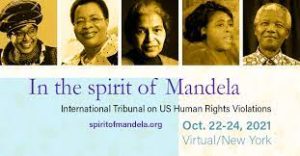 together against the systemic, historic, and ongoing human rights violations and abuses committed by the USA against Black, Brown, and Indigenous People. The Coalition recognizes and affirms the rich history of diverse and militant freedom fighters Nelson Mandela, Winnie Mandela, Graca Machel Mandela, Rosa Parks, Fannie Lou Hamer, Ella Baker, and many more. It is in their Spirit and affirming their legacy that we work. This October 22-25 2021, In the Spirit of Mandela Coalition will be organizing and hosting an International Tribunal which will be charging the United States government, its states, and specific agencies with human and civil rights violations against Black, Brown, and Indigenous people. The Tribunal will be charging human and civil rights violations for:
together against the systemic, historic, and ongoing human rights violations and abuses committed by the USA against Black, Brown, and Indigenous People. The Coalition recognizes and affirms the rich history of diverse and militant freedom fighters Nelson Mandela, Winnie Mandela, Graca Machel Mandela, Rosa Parks, Fannie Lou Hamer, Ella Baker, and many more. It is in their Spirit and affirming their legacy that we work. This October 22-25 2021, In the Spirit of Mandela Coalition will be organizing and hosting an International Tribunal which will be charging the United States government, its states, and specific agencies with human and civil rights violations against Black, Brown, and Indigenous people. The Tribunal will be charging human and civil rights violations for:
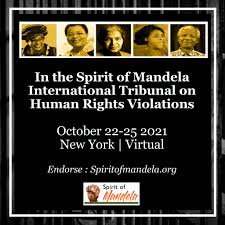 Racist police killings of Black, Brown, and Indigenous people.
Racist police killings of Black, Brown, and Indigenous people.- Hyper incarcerations of Black, Brown, and Indigenous people.
- Political incarceration of Civil Rights/National Liberation era revolutionaries and activists, as well as present day activists.
- Environmental racism and its impact on Black, Brown, and Indigenous people.
- Public Health racism and disparities and its impact on Black, Brown, and Indigenous people.
- Genocide of Black, Brown, and Indigenous people as a result of the historic and systemic charges of all the above.
Black Alliance for Peace (BAP)
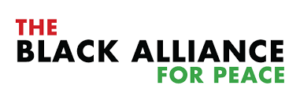 The Black Alliance for Peace (BAP), https://blackallianceforpeace.com/, seeks to recapture and redevelop the historic anti-war, anti-imperialist, and pro-peace positions of the radical black movement. Through educational activities, organizing and movement support, organizations and individuals in the Alliance will work to oppose both militarized domestic state repression, and the policies of de-stabilization, subversion and the permanent war agenda of the U.S. state globally.
The Black Alliance for Peace (BAP), https://blackallianceforpeace.com/, seeks to recapture and redevelop the historic anti-war, anti-imperialist, and pro-peace positions of the radical black movement. Through educational activities, organizing and movement support, organizations and individuals in the Alliance will work to oppose both militarized domestic state repression, and the policies of de-stabilization, subversion and the permanent war agenda of the U.S. state globally.
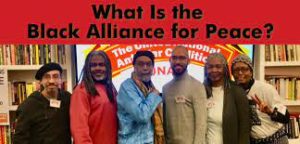 PRINCIPLES OF UNITY
PRINCIPLES OF UNITY
RIGHT TO SELF-DEFENSE
BAP is not a pacifist movement. While committed to peace, we understand there can be no peace without justice, and we will stand in solidarity with all peoples (and nations) who strive to liberate themselves from oppression.
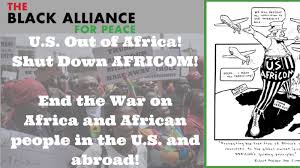 SELF-DETERMINATION
SELF-DETERMINATION
BAP supports people’s struggles for national liberation and self-determination, with a special focus on the struggles of Black peoples and nation-states in the “Americas.”
ANTI-IMPERIALISM
BAP takes a resolute anti-colonial, anti-imperialist position that links the international role of the U.S. empire to the domestic war against poor people and working-class Black people in the United States.
WORKING-CLASS FOUNDATION
BAP identifies the Black working class as the main social force of any reconstituted Black Liberation project.
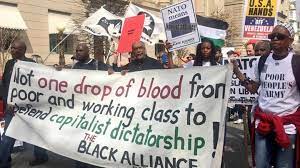 INTERSECTIONALITY
INTERSECTIONALITY
“People(s)-centered human rights” as defined as emanating from bottom-up mass struggle and informed by a Black, revolutionary, feminist intersectional framework will be the basis for analysis and actions.
ANTI-PATRIARCHY
All members, on an organizational and individual level, must be committed to ending patriarchy and all forms of male domination in either internal organizational practice or external/public political positions.
DECOLONIZATION
Members of this Alliance see the U.S. state as the ongoing institutional expression of settler-colonialism and are committed to an authentic process of decolonization in every sense of that term.
PRISONER SUPPORT
BAP is committed to working against all forms of state and domestic repression, including the issues of political prisoners and prisoners of war in the United States.
BLACK UNITY
BAP sees itself as one aspect of the effort to revitalize the broader Black Liberation Movement.
SOUTHERN ROOTS
The South is the base of U.S. military infrastructure. It’s also where 55 percent of Black people happen to live. BAP identifies this region as a priority for collective learning, organizing, and mobilizing the power and influence of Black workers and the poor to oppose militarism, war and imperialism.
—
AFRICA400
Wednesdays 2-3pm EST.
https://handradio.org/
https://kuumbareport.com/
webuyblack.com
kweli.tv

